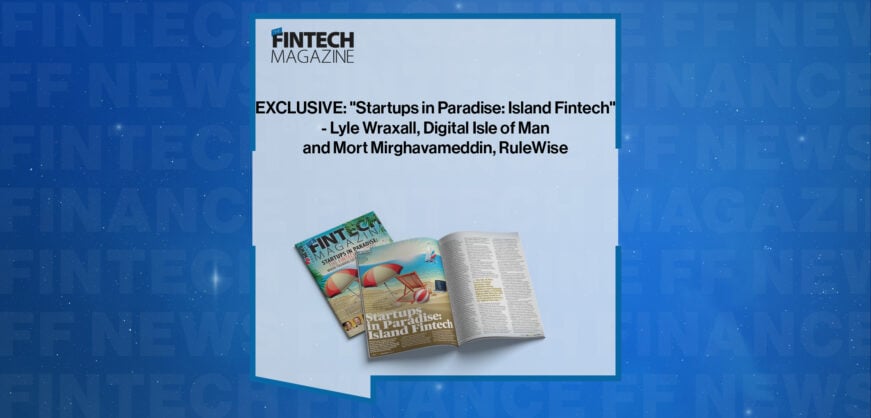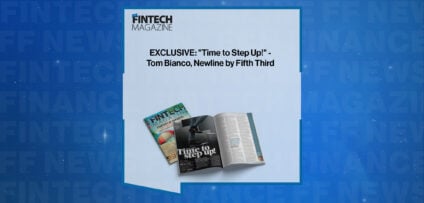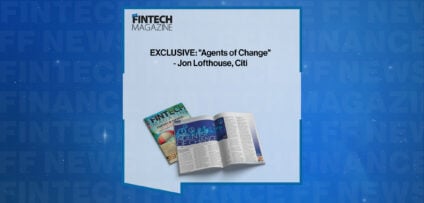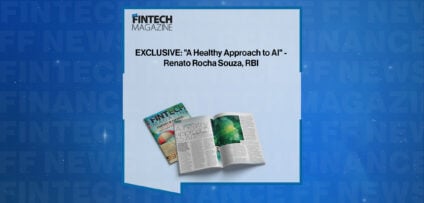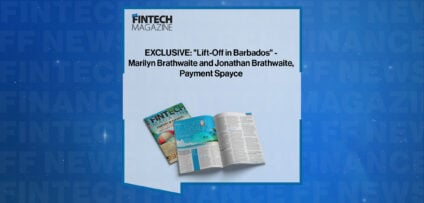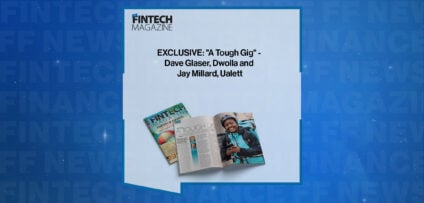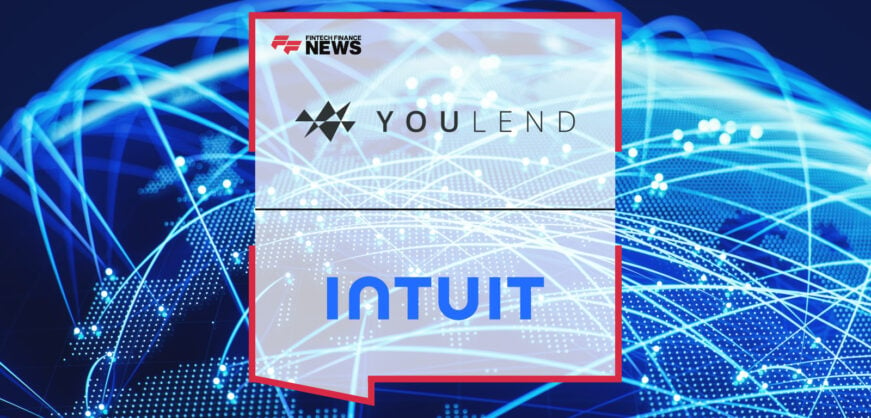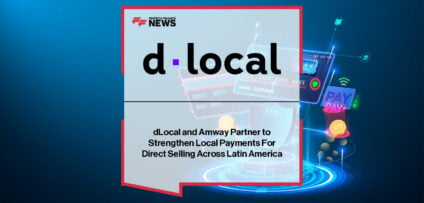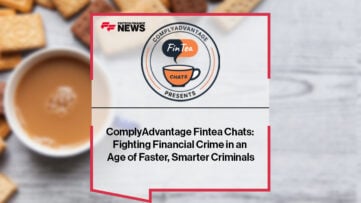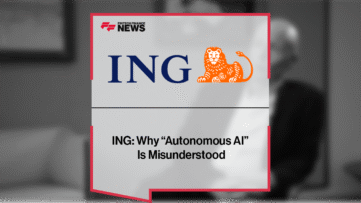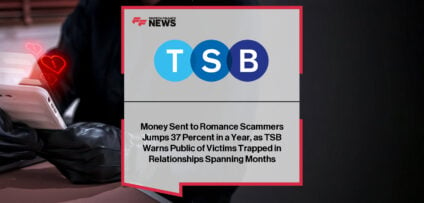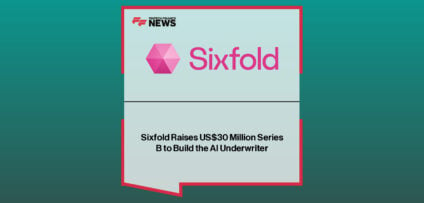Breaking News
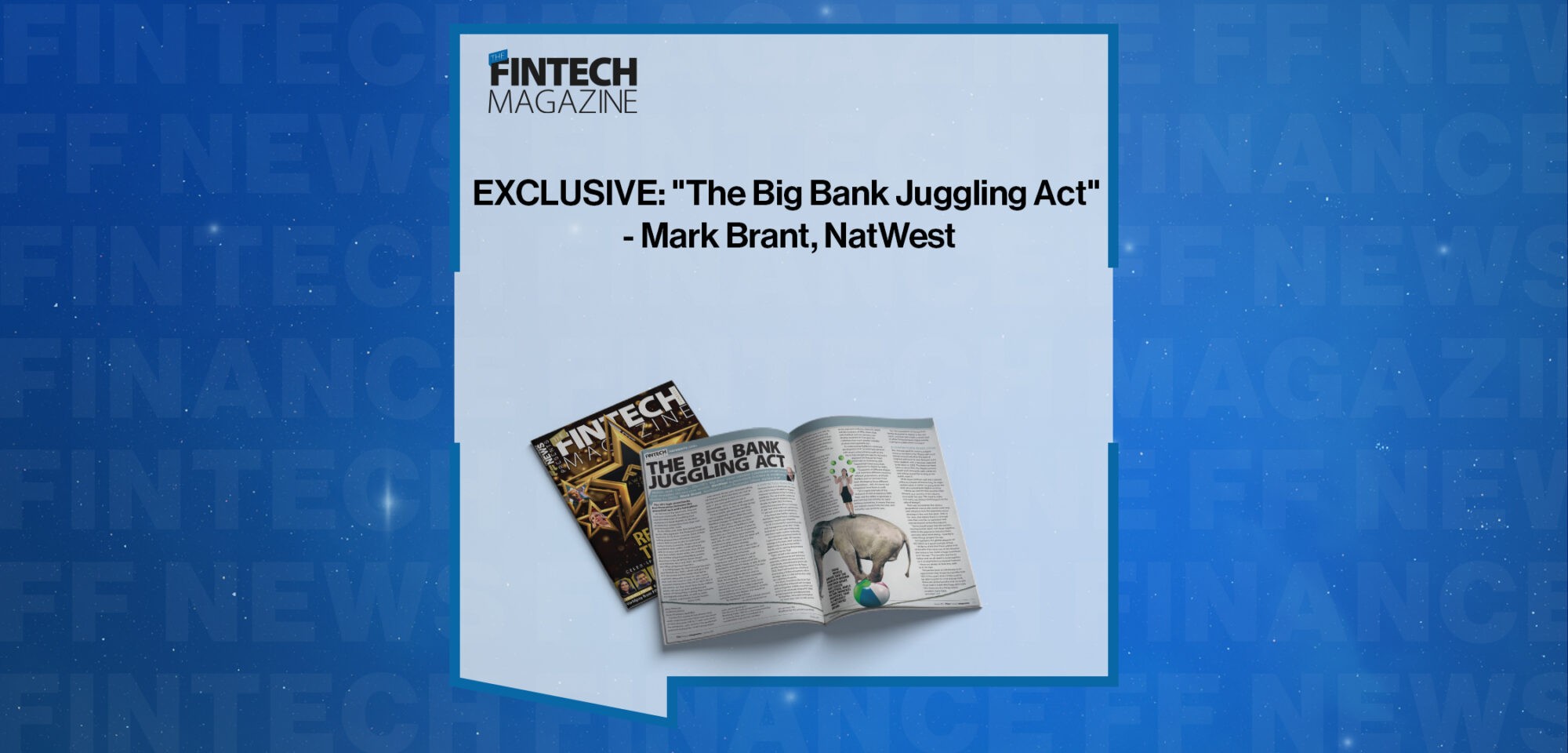
EXCLUSIVE: “The Big Bank Juggling Act” – Mark Brant, NatWest in ‘The Fintech Magazine’
Mobile, cash, CBDCs… The UK’s ‘Big Four’ must maintain a payments infrastructure that straddles old and new worlds. NatWest is particularly focussed on maximising choices for SMEs. Mark Brant, NatWest’s Chief Payments Officer, explains how
The UK’s high street banks find themselves between the proverbial rock and a hard place. At one end of the spectrum, they are having to continually devise ever more sophisticated ways of enabling their customers to bank digitally in the face of white-hot competition from their neo payment provider rivals.
At the other end, they face being fined by the UK’s regulator, the Financial Conduct Authority (FCA), from summer 2024, if their rolling programmes of branch closures reduce free-to-use access to cash from today’s levels.
Currently, 95 per cent of the population lives within a mile of being able to access cash and more than 99 per cent lives within three miles. For context, the number of bank and building society branches in the UK fell by about 34 per cent between 2012 and 2021, according to the Office of National Statistics. A briefing paper for the Financial Services and Markets Act 2023, which will give the FCA the power to fine banks that fail to maintain adequate access to cash, notes that cash was used in only 14 per cent of recorded payments in the UK in 2022.
But it also points out that more than three million adults still use it as their predominant means of transacting, a group that includes the digitally excluded, as well as older people, individuals in poor health, those with poor financial resilience and/or lower financial capability.
Further FCA research has shown that while small businesses have seen the level of cash payments fall by 15 per cent since the pandemic, cash remains the preferred payment method for small transactions with almost 40 per cent of people telling UK Finance in 2022 that they use cash to pay for something at least once a week, and 11 per cent preferring to use it.
Interestingly, 16 to 24-year-olds used cash almost as regularly as the 45-54 age group. From a bank’s perspective handling cash is logistically expensive and most set handling charges to offset the cost.
NatWest charges its business customers 70p per £100, plus a 70p fee per item. But Mark Brant, who as NatWest’s chief payments officer is in charge of what he describes as a ‘broad church’ of payment topics, all the way from open banking and APIs to cash, insists that the latter will continue to play a central role in the bank’s overall business strategy. He recognises that cash is key to the bank living up to one of its main roles of promoting financial inclusivity.
“Cash is really important for small businesses and sole traders; cash is really important for a segment of the population who aren’t ready, or able to fully participate in mobile experiences,” he says.“It’s very easy for some of us – I’m carrying two mobile devices and an iPad, for example. But I have examples in my own family where access to cash is important. One has early-onset dementia and cash is really important for enabling her to be included in society. If everything was digital, she would be completely marginalised.
“At NatWest, we invest a huge amount in ensuring access to cash, participating in the Access To Cash programme and Banking Hubs. We’ve a real responsibility to ensure that cash is enabled in a sustainable way across society.”
A CONTACTLESS REVOLUTION
However, there is no denying the dash from cash, which was accelerated by lockdown measures introduced during the COVID-19 pandemic. The use of cashless payments in the UK has almost doubled in the past decade. By March 2023, for instance, contactless payments alone accounted for 61 per cent of all credit card payments and 75 per cent of all debit card transactions.
It has meant that NatWest has had to develop the digital tools its small business customers need to stay competitive. In 2019, it started Tyl, a payments service and management portal, which enables businesses to track sales and payments, and even create customer loyalty offers. As a merchant acquiring business, Tyl is part of a much wider SME payments strategy at the bank, which includes its digital-only small business neobank, Mettle, and its open banking merchant payments service, Payit.
Payit, started in the summer of 2020, enables businesses to send and receive payments without the need for bank or card details, streamlining the process and greatly reducing admin time. By August 2022, Payit had reached the milestone of processing £1billion of payments with an average value of £200 and has since swept up a plethora of awards.
For Brant, innovations like Tyl and Payit will be further enhanced with the added data and greater visibility contained in the soon-to-be universally adopted ISO 20022 global payments messaging standard.
“Some would argue that the world is moving further apart, not closer together, while in the payments industry, that is precisely what we’re doing”
“At NatWest, we’ve been working hard for many years now, to make sure that we can meet the deadlines for ISO, and we’re constantly looking for benefits from it, as well,” he says. “I think those benefit cases will come, over a prolonged period of time. Data, and the enhanced data that will come with it, should enable payments to flow straight through without being interrupted, and that’s what our customers expect.”
Further emphasising that need for payment systems to be both flexible and transparent, Brant adds: “Our customers want payments to be safe, simple, and secure. They want to be able to initiate them from any device, at any time of day, and they want to have visibility of them.
“If I take the example of some of the delivery experiences that we’ve got at the moment in the UK – the Ubers, or the Deliveroos, the Just Eats – can you imagine how frustrated you’d be if you didn’t know where your pizza or kebab was? Something similar to that traceability needs to be applied to the payments industry. And ISO 20022 and the evolution of APIs, mean that both NatWest and our partners can develop experiences that give our customers that much greater visibility of where their payments are.”
As evidenced by NatWest’s continual development of its Tyl and Payit services, with recent enhancements such as the Tap to Pay smartphone app for Tyl and a payment link feature for Payit, Brant sees an increasing shift happening in payments from electronic to digital for SMEs.
“Customers of different shapes and sizes have different needs for different propositions, and both NatWest and our partners have been developing those different propositions – and, of course, our competitors have been as well!
“Tyl is a great example of the evolution of card acceptance. With Payit, and the ability to generate a payment link that initiates an open banking transaction, it means that you can request money from me now, and instantly I can send it to you.
“So, the movement of money, from being electronic to digital, is the next wave, and that will enable a whole host of other things because digital money is programmable and it is instant.”
A CONTACTLESS REVOLUTION
The ultimate goal for some is a digital currency to replace fiat. There’s still much debate around whether the Bank of England will issue its own ‘Britcoin’, as it’s been dubbed, with a decision expected to be taken in 2025. The Bank has been keen to stress that any digital currency would work alongside cash, which it’s said will be issued ‘for as long as the public want it.’
While Brant believes cash has a proven utility as a means of transacting, he urges caution when it comes to going down the path of a central bank digital currency.
“I think we need to take sensible steps forward, as a country, as an industry, as a world,” he says. “We need to make sure we’re not doing something just for the sake of doing it.”
That said, he believes the various geopolitical crises in the world could very well influence how the payments sector develops in the next few years. And, in his view, that means there’s a stronger case than ever for co-operation and standardisation across the industry.
“Some would argue that the world is moving further apart, not closer together, while in the payments industry, that’s precisely what we’re doing – looking to make things simpler,” he says
He highlights the global adoption of ISO 20022 as a good example of that.
“I’d like to think that there will be a list of benefits that come out of ISO, because the industry has made a huge investment in it,” he says. “The benefit case has to follow and we all need to work together on it as payments is a network business – there are always at least two sides to it,” he says.
“All parties have to collaborate in an appropriate way, to get the benefits from ISO. In five years’ time, I’d like us all to be able to point to a list and say ‘look, these are all the benefits that we’ve got. If we hadn’t made this huge effort with ISO, these are the things which wouldn’t have been possible’.”
This article was published in The Fintech Magazine Issue 30, Page 25-26
People In This Post
Companies In This Post
- YouLend and Intuit Team Up to Bring Embedded Capital to QuickBooks UK Customers Read more
- dLocal and Amway Partner to Strengthen Local Payments For Direct Selling Across Latin America Read more
- How Freedom Holding Corp Turned Technology Foundations into a Scalable Fintech Ecosystem | Freedom Holding Corp | The Fintech Show #161 Read more
- ComplyAdvantage Fintea Chats: Fighting Financial Crime in an Age of Faster, Smarter Criminals Read more
- ING: Why “Autonomous AI” Is Misunderstood Read more






